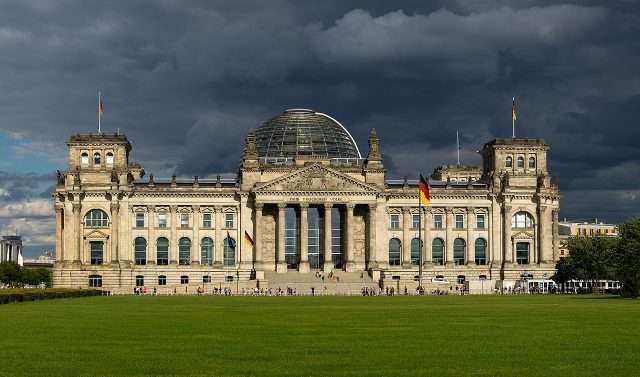
Author: Abed Akbari
Due to the Ukraine conflict and the European Union confrontation with Russia, Germany decided to increase its military expenditure proving Berlin’s new strategic approach to the European geopolitics.
After World War II, Germany’s neighbours scrutinised the country’s military expenditures cautiously. Recently, they have called for a change in Berlin’s approach in defence and military fields. Several European actors interpreted Germany’s refusal to increase its militarisation as irresponsible, which could have paved the ground for threats against Europe.
According to the Eastern European countries’ viewpoint, which has been trying for a while to influence Brussels’ policies too, Russia represents a neverending threat against Europe. Based on this, even after the collapse of the former Soviet Union, they firmly believe that NATO should continue to exist. Considering this context, why has Germany planned to create a balance with Russia? The first reflection is Germany’s understanding of a change in the international system. Furthermore, the need to redefine Germany’s identity after the Merkel era and meet the demands raised by Eastern Europe at later stages.
With the U.S. departure from Afghanistan, which defined an essential historic turning point for the international system, we witness the measures Eurasian actors have started to evaluate their position in the global system and identify the onward threats. In this context, the foreign policy of Russia toward NATO, of the U.S. towards China and Israel towards Iran might be interpreted as a test of what these international powers retain to be their primary threat.
Based on this, the increase in Germany’s military budget is not a reaction to Russia but a calculated action based on the perception of international trends. Within this perspective, instead of pursuing the balance of power, the actors pay attention to the balance of threat, which is a combination of government offensive power, military capabilities, geographical neighbourhood, and assaultive and hostile intentions of competitors.
Germany claims to integrate with its neighbours and to recognise Russia as an immediate threat to the existence of Europe and its national interests. According to this viewpoint, Germany’s alignment in the EU gives the country uncontested leadership, which was not effective earlier as, during Merkel’s government, both France and Britain claimed the right to lead Europe.
The second and the most crucial reason for Germany’s decision is to redefine its identity on the world chessboard under the new leadership. As underlined by the international media in the aftermath of the farewell of the Chancellor at the head of the country, in fact, Europe would have struggled to find an equally authoritative leader.
Therefore, we face a young Europe, scared to move independently and challenged by new threats. Array against Russia is the cornerstone of the post-Merkel era. The decision may be mistakenly interpreted as a fundamental change in political terms inside Germany and that the new coalition of Germany has taken steps into a new path opposite to the previous Merkel’s customary one.
Germany’s policy aligns with Merkel’s policy’s integration and continuity. Europe’s motivation is to exit from the stalemated status of transition in the international order, which according to them, will be achieved with European independence and the establishment of the European Autonomous Army. Germany always could encourage Europe to follow it and find a path out of the crisis. Meanwhile, Eastern Europe demands a security–defensive reward for its following.
Europe’s options for Germany are to obtain North Stream 2 and optimum relations with Russia or earn Europe’s leadership, especially since Britain is no longer part of the EU and France needs Germany for hardware and financial reasons. Germany could be a winner without honour if it chose Russia, and it still could be a winner if it decided the leadership of Europe, but this time with honour.
According to the previous considerations, Germany’s policy has been to achieve an integrated European leadership with collective support patiently. Today, the European media believe that Germany has become responsible and has put aside its national interests and economic projects with Russia. While the Western alliance exerts pressure on Germany, Berlin has its vision and strategy for Ukraine in the transition of international order.
After passing through this stage and during the coming months, Germany will proceed with liberalistic thoughts, protecting freedom and democracy. Moreover, in the light of a calculated interpretation of the security of its territory and that of Europe, Germany will modernise and replace its military equipment in the first step, mainly concentrating on its flying fleets. Berlin will enter into European defensive industries and achieve the military field’s know-how by cooperating with other European countries’ manufacturing industries.
Currently, Europe has welcomed this new German strategy. North Stream 2 gas pipeline has only been halted, not cancelled. The European population will witness new laws in the energy and nuclear field. Berlin might make Paris go beyond the United Nations Security Council veto, safeguard nuclear arms and allocate a special vote for the European Union in the Security Council. Pressures could be mounted on France through widespread dissatisfaction against the government. The Federal Ministry of Defense will prepare reports about the state of defensive industries, defensive logistics preparedness and capabilities of Germany’s and Europe’s Armed Forces. It is predictable that NATO members, especially the U.S., will establish factories in the European field. Part of this strategy will focus on economic and social stability. Having faced new waves of refugees, higher taxes and defensive expenditures, German voters might support their government’s new policy.
After the U.S. departure from Afghanistan, and the transition towards a new international order, the redefined foreign policies of European countries should not be considered only in the light of a current necessity but, moreover, in the light of their national interests and long terming goal achievements.
Disclaimer: The views and opinions expressed in this article are those of the author and do not necessarily reflect the official policy or position of SpecialEurasia. Abed Akbari is the Managing Director of Tehran International Studies & Research Institute.



